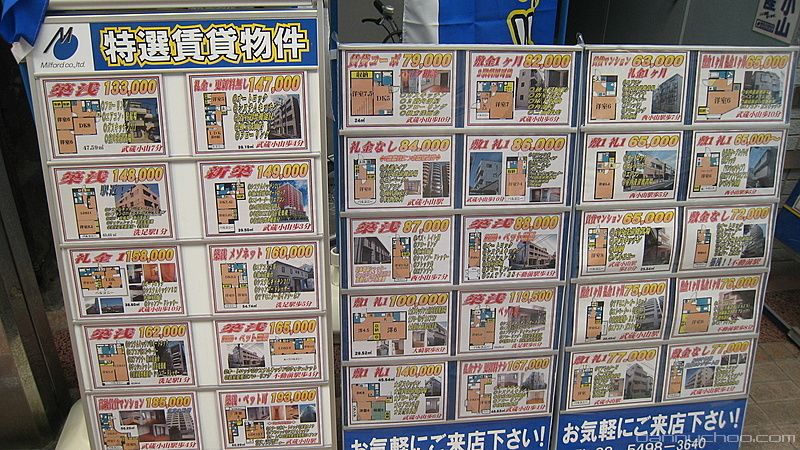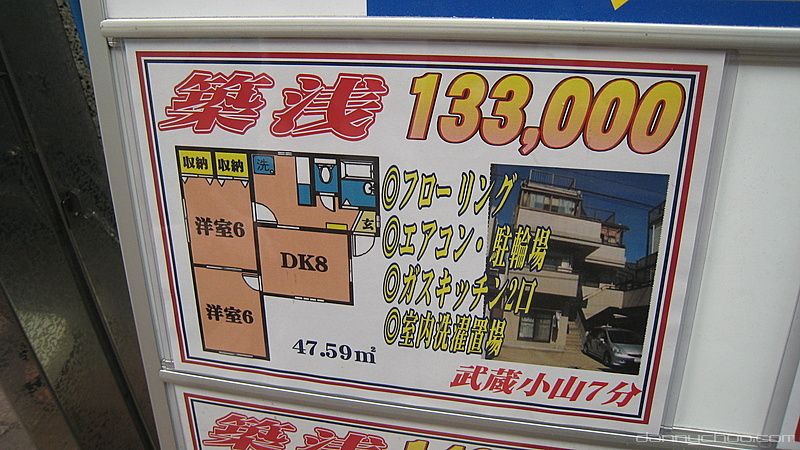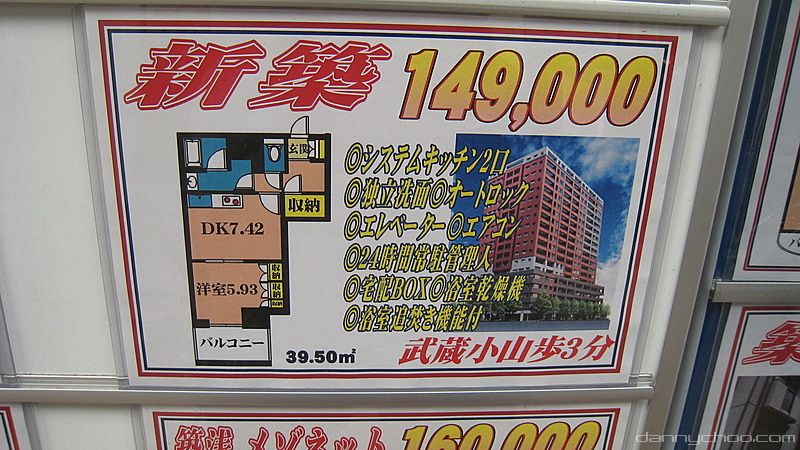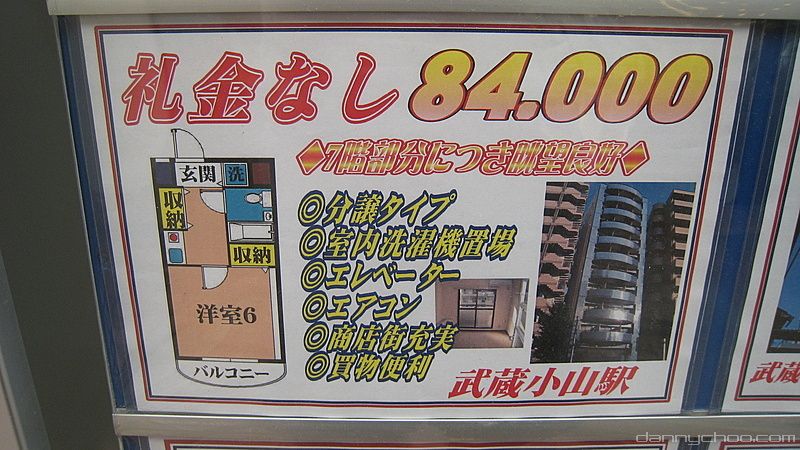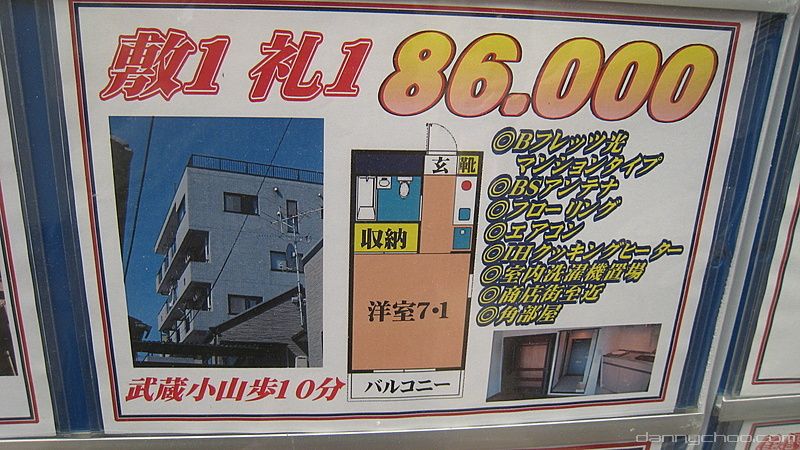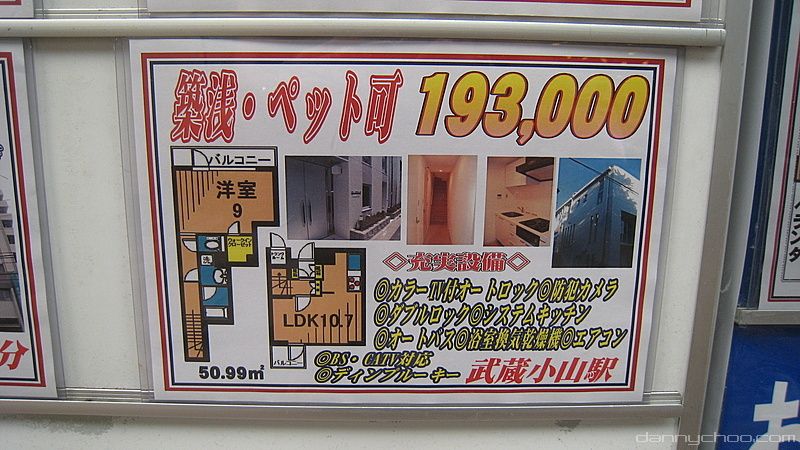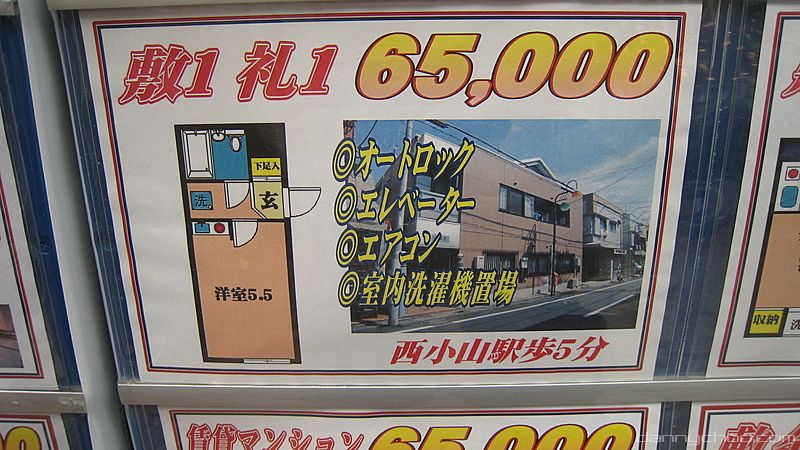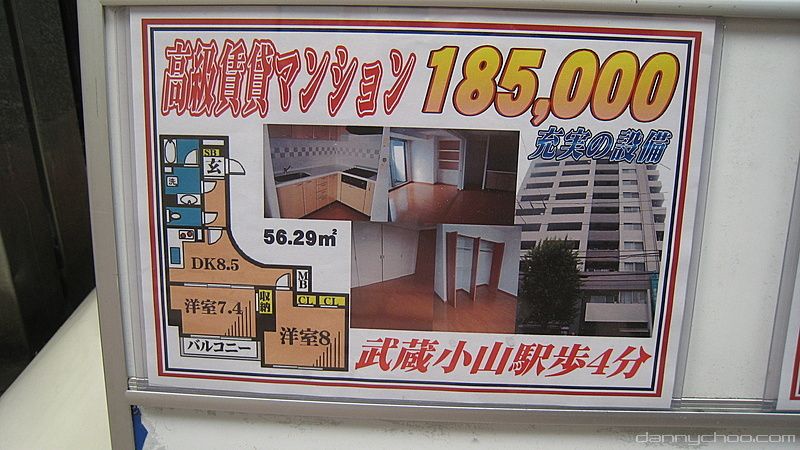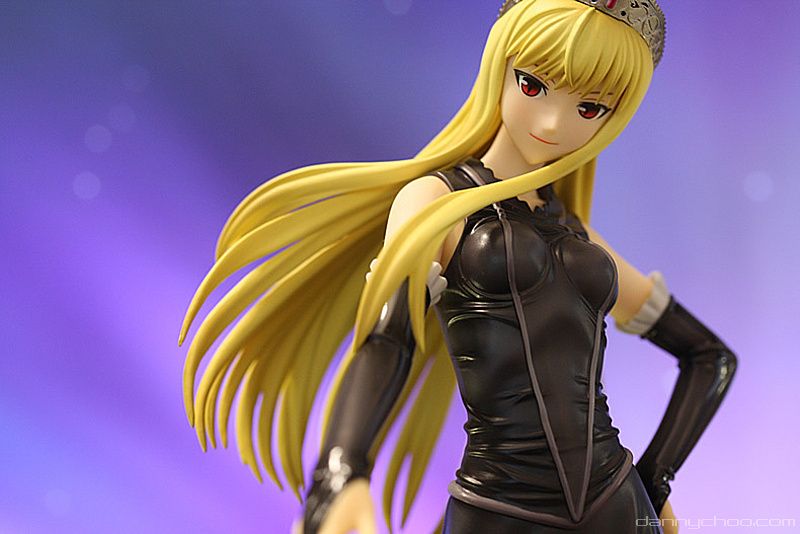Japanese Housing
Today we are going to look at some useful terms to know when looking for a place to rent in Japan.
This is a pic of a board outside an estate agents full of info on nearby apartments to rent.
If you are looking for a place to rent, I recommend going to the station situated in the area where you want to live and check out the estate agents there.
The agent will usually take you by car and show you whats available.
If you are looking for a place to rent, I recommend going to the station situated in the area where you want to live and check out the estate agents there.
The agent will usually take you by car and show you whats available.
And before I continue, I'd like to recommend (as I always do) that you learn to speak Japanese if you are planning on living here. While many foreigners do get by living here with hand and feet gestures, folks who have a good command of Japanese will not only find it easier (and more fascinating) going about daily life, they will also find that it will create more opportunities in their career too.
Anyway, the red large kanji you see here is "Chikuasa" ] which means that its only been a few years since this building was built - many Japanese factor this into deciding whether to rent a place. For 133000 yen per month, you get 47.59 square meters to play with.
The kanji in red this time says "Shinchiku" ] which means "newly built." In the case of this apartment, you get to pay more (149000 yen) for less space at 39.50 square meters.
The kanji here says "Reikin Zero En" ] which means "Gratuity fee 0 yen."
Since the dark ages, citizens have been paying the landlord a gratuity fee for letting them live in the landlords apartment. This gratuity fee can be up to 2.5 times the monthly rent and to make the situation even more amusing - you don't get this money back - none of it, Sweet FA, absolute squat.
Since the dark ages, citizens have been paying the landlord a gratuity fee for letting them live in the landlords apartment. This gratuity fee can be up to 2.5 times the monthly rent and to make the situation even more amusing - you don't get this money back - none of it, Sweet FA, absolute squat.
This one room mansion will cost 84000 yen per month.
The kanji here says "Shiki Ichi, Rei Ichi" . The "Rei" is short for "Reikin" that we saw earlier on - the gratuity fee and the "Ichi" means "One." This means that you have to thank the landlord with only a months rent.
"Shiki" is short for "Shiki kin" ] which is "Key money" - this can be up to 3 times the monthly rent and is used as a deposit which the landlord uses to clean up the place when you leave. S/he usually tries to use as much of it as possible so when you move out so its like "thanks for staying with us for the years, here is a slap in the face and get out of here you stinking rat."
So with up to 2.5 months gratuity fee, an additional sum of key money (up to 3 months rent) *and* an additional two months rent up front to the landlord, you can see that it costs more than a few limbs to move in Japan. Ah, I forgot that you also need to pay the estate agent a months rent for introducing the place to you.
Lets say you find a place for ||100,000|| rent per month, in the worst case you need to pay ||850,000||. The average Key money is 2 months while the gratuity fee is 2 months.
Lets say you find a place for ||100,000|| rent per month, in the worst case you need to pay ||850,000||. The average Key money is 2 months while the gratuity fee is 2 months.
To make looking for apartments more fun, foreigners in Japan have to go through the humiliation of the estate agent calling up the landlord in front of you - the conversation in my previous experiences have been... Hi, My name is Taro from Eiburu Estate agents. We have a foreigner interested in your apartments, do you allow foreigners? I've been turned down a few times this way and its a horrible feeling - especially just after arriving in Japan.
After my first few experiences, I learned to ask the estate agent to call the landlord *before* we wasted time looking on and deciding on a place.
Do citizens have to go through grief to rent a place in your neck of the woods? Anyway, looks like this one room mansion is equipped with a B-Flets 100Mbps Internet connection. The rent here is 86000 yen for the month.
Speaking of B-Flets optic fiber (which we use at home), NTT are having a "get your first 4 months free" campaign. Many moons ago, when I signed up I got 3 months free. I canceled and signed up again to see if I would get another free months free and sure enough I got it - but they had to disconnect me for a week.
A week without "teh Internets" is like a week without water for me and was incredibly painful - never tried that stunt again ^^; Besides, I only pay something like 5000 yen - 6000 yen per month for the optic fiber connection while other countries have to pay much much more for the same type of speed.
A week without "teh Internets" is like a week without water for me and was incredibly painful - never tried that stunt again ^^; Besides, I only pay something like 5000 yen - 6000 yen per month for the optic fiber connection while other countries have to pay much much more for the same type of speed.
My speed today is 76946 kb/s down and 9144 kb/s up. My ISP is Biglobe which Geass fans will know of.
How much are you paying for your connection and how much is it?
The Kanji here is "Chikuasa, Petto Ka" . You already know what "Chikuasa" means and "Petto Ka" means "Pets allowed."
Many landlords don't want pets scratching up their rooms even though they are going to raep you of your key money to fix everything when you leave.
Some landlords are more open and allow pets but usually snakes, dogs or cats.
You should be able to identify these kanji by now.
As mansions are built to be rented out, the landlord wants to spend as little as possible on materials which is why many mansions have very thin walls - thin enough to hear people next door sneeze or get up to hanky panky. The walls on the outside may be concrete but the walls between each dwelling is in most cases not.
The kanji in red here says "Koukyuu Chintai Mansion" meaning "High quality rental mansion."
The emphasis on "high quality" is to let you know that its built with higher quality materials.
For more info about housing in Japan, have a look at this wikipedia entry, my Tokyo Apartments and Tokyo Property Purchase article where you will learn more of the reasons for me to stop renting and buying property.
And this has nothing to do with renting a place but would brighten up any apartment any day - more pics of Hime that I uploaded to my corner at the GSC site.
And back to today's topic, how many of you live or have lived in Japan before?
